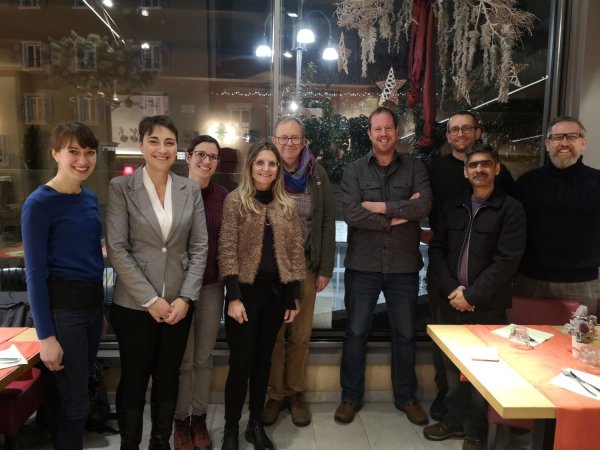Advancing lab analysis of simulated samples, crucial to developing forensic techniques, is focus of FORESFA Trentino workshop
The FORESFA project's laboratory group met for a workshop in Trentino, Italy, with participants from Oxford, Edinburgh, London, and Vienna. The workshop focused on advancing the analysis of simulated samples, which are crucial to developing forensic techniques to analyse falsified medical products. Challenges in data integration, collaboration with external experts, and a workflow for the first pilot analysis of falsified samples were discussed.

From 15-18 January, the laboratory group of the FORESFA project (Forensic epidemiology and impact of substandard and falsified antimicrobials on public health) met in Trentino, Italy. FORESFA group members arrived from Oxford, Edinburgh, London and Vienna for an interactive two-day workshop, hosted by the Research and Innovation Centre of the Fondazione Edmund Mach (FEM), renowned for its wine academy and agrarian institution. As part of the ongoing project funded by the Wellcome Collaborative Award, the FEM is conducting isotope ratio mass spectroscopy (IRMS) of falsified medicines in its laboratories.
Led by Oxford Prof Paul Newton, Head of IDDO’s Medicine Quality Research Group, FORESFA is a global collaborative project that brings together leading specialists in the illegal wildlife trade, forensic genomics and chemistry, and social network analysis and modelling to improve our understanding of the epidemiology and impact substandard and falsified (SF) medicines and inform global policy and action.
Advancing laboratory analysis of simulated samples of known composition and origin, specifically produced for FORESFA in Huddersfield and Bangkok at MORU, was a key workshop aim. These samples are crucial to develop and validate forensic techniques, including genomic, chemical and isotopic analyses.
Methods previously used to investigate wildlife trade and food adulteration are being used to unravel the ‘pharmabiome’ and chemical spectra of falsified medical products.
Other workshop discussions included challenges in integrating data within the three participating labs, and collaboration with external experts that will expand FORESFA’s scope and impact.
The group agreed on a workflow for the coming months and on the first pilot analysis of falsified samples that will provide an interesting case study on forensic analysis of falsified medical products.
The workshop in Trentino built on the success of previous FORESFA meetings in Oxford and Edinburgh, where team members of the international collaborative project discussed how to identify sources and trade routes of substandard and falsified antimicrobials using innovative forensic tools and social network analysis.
